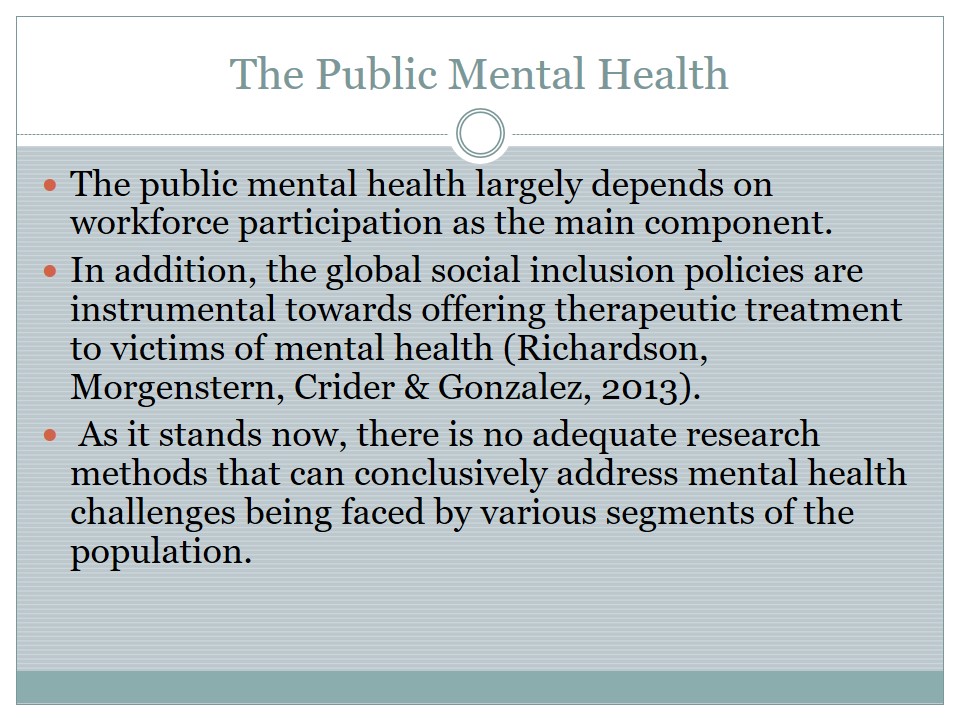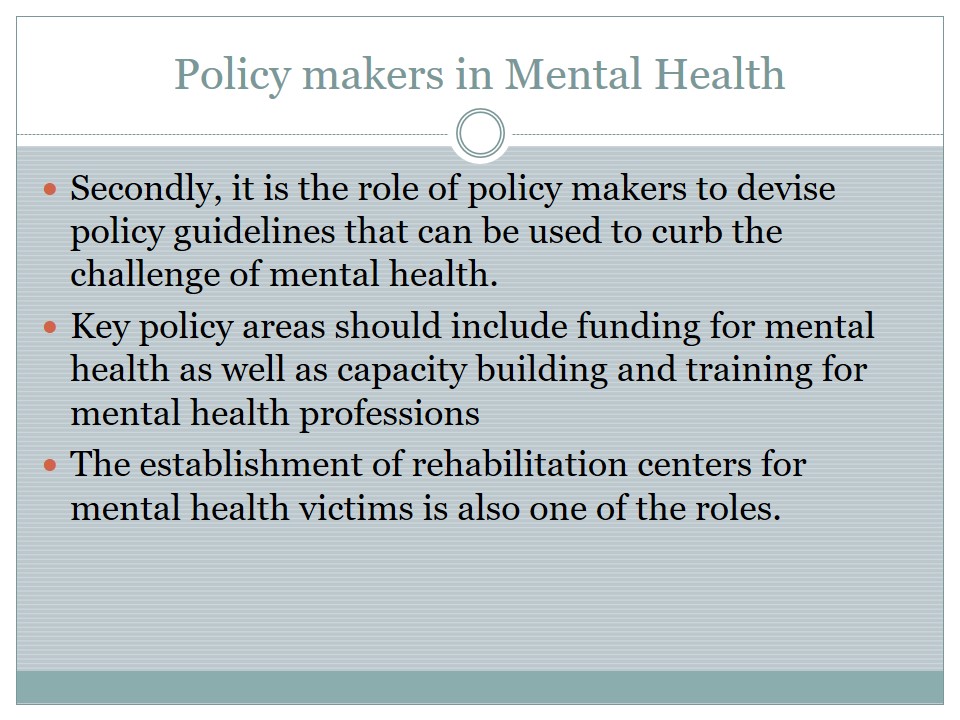Background
- Mental health is a critical area of healthcare delivery in the United States.
- As much as a lot of emphasis has been given in other segments of health, there is urgent need to transform the mental health program among the affected population.
- For instance, war veterans coming back home often require mental health redress especially after undergoing several episodes of traumatic events.
They need to be treated and taken through therapeutic psychological counseling. This presentation describes the roles of various stakeholders in the health care industry and who are also involved in mental health care programs.

The Public Mental Health
- The public mental health largely depends on workforce participation as the main component.
- In addition, the global social inclusion policies are instrumental towards offering therapeutic treatment to victims of mental health (Richardson, Morgenstern, Crider & Gonzalez, 2013).
- As it stands now, there is no adequate research methods that can conclusively address mental health challenges being faced by various segments of the population.
For this reason, medical researchers in mental health programs are supposed to carry out valid and updated empirical research on this continuum of care. There is need for latest research data that can be used to formulate healthcare policies on mental health programs.

Policy makers in Mental Health
- Secondly, it is the role of policy makers to devise policy guidelines that can be used to curb the challenge of mental health.
- Key policy areas should include funding for mental health as well as capacity building and training for mental health professions.
- The establishment of rehabilitation centers for mental health victims is also one of the roles.
Such centers can indeed assist in alleviating unemployment due to the manpower to be employed as well as professionals to be hired (Richards, Rafferty & Gibb, 2013).

The Role of Mental Health Courts
- The mental health courts also play vital roles in the management of challenges posed by individuals experiencing mental disturbances.
- A viable and fruitful partnership can be established between the criminal justice system and mental health courts (Olesen et al., 2013).
- One of the outstanding roles of the mental health courts is to interpret the legislations adopted by the Congress in regards to mental health cases.
Therefore, evidence based practice in mental health is prudent in the sense that it enables full redress of mental health cases. In other words, patients who are mentally challenged are in a position to seek medical help and thereafter receive the much needed treatment (Hughes & Peak, 2012).

References
- Hughes, S., & Peak, T. (2012). Evaluating Mental Health Courts as an Ideal Mental Health Intervention. Best Practice In Mental Health, 8(2), 20-37.
- Olesen, S. C., Butterworth, P., Leach, L. S., Kelaher, M., & Pirkis, J. (2013). Mental health affects future employment as job loss affects mental health: findings from a longitudinal population study. BMC Psychiatry, 13(1), 1-9.
- Richards, C., Rafferty, L., & Gibb, A. (2013). The value of mental health nurses working in primary care mental health teams. Mental Health Practice, 16(10), 19-23.
- Richardson, J., Morgenstern, H., Crider, R., & Gonzalez, O. (2013). The influence of state mental health perceptions and spending on an individual’s use of mental health services. Social Psychiatry & Psychiatric Epidemiology, 48(4), 673-683.